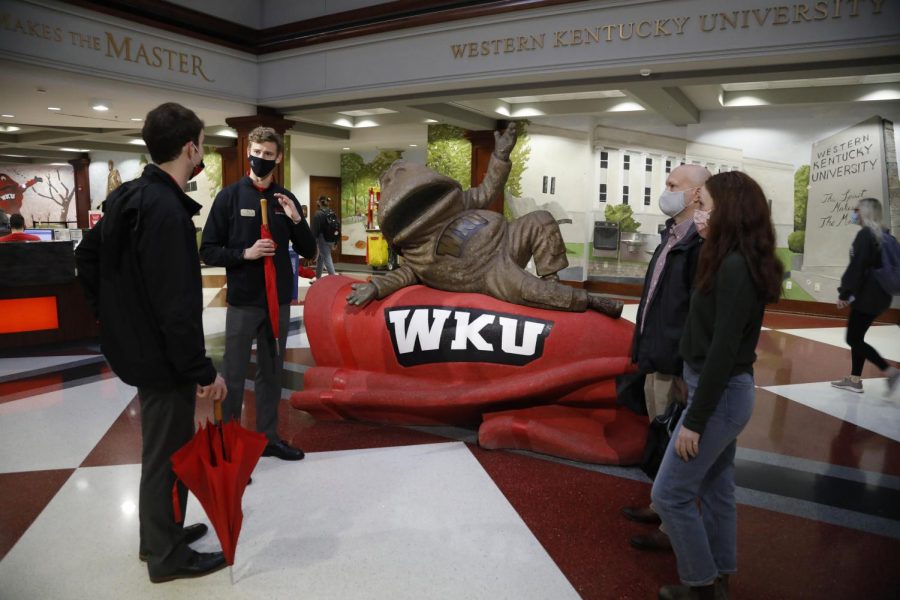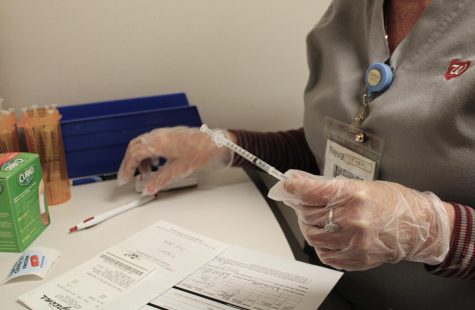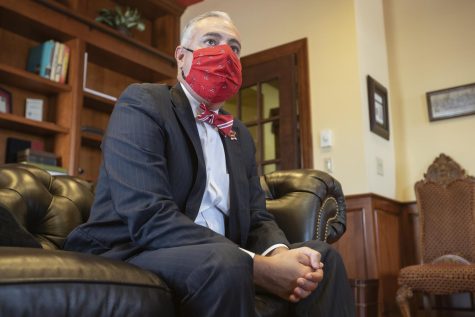Students orgs react to COVID: What’s changed
March 16, 2021
With COVID-19 being as large of a factor as it has been for the past year, it is no secret that on-campus student organizations are seeing the lasting effects of the pandemic.
WKU has seen many new plans, regulations and guidelines to tackle COVID-19 since the start of last semester, and many of these policies have consequently altered the way student organizations operate.
These policies have included social distancing guidelines, alterations in the layouts of public spaces, lowered class sizes and online format options for almost everything on campus.
One of the most impactful policies that has affected student organizations is the limitations on group gatherings with social distancing and reduced participants.
Leah Walker, the women’s ministry director for Christian Student Fellowship, addressed the difficulties this caused.
“What mostly seemed to change for us was the number and size of events we could have, so sometimes it feels like less students are coming around because we have fewer things that they can attend,” Walker said in an email.
Walker also contributed the lack of participation in CSF events to the large amount of safety protocols for COVID-19, but mentioned that CSF has still been able to operate semi-normally despite some difficulties.
Ken Barlow, president of the Phi Gamma Delta fraternity, has seen difficulties with his fraternity due to the pandemic.
“I miss little things like being together with the entire organization at meetings, formals, and other fun events we have,” Barlow said in a text. “COVID-19 took that away and it has been a challenge for everybody, but we have just had to find ways to be creative to spend time with our brothers, whether that is in small groups or virtually.”
Barlow said he is still very passionate about Fiji and has been adamant about making sure that the people he cares about have a memorable semester despite the hardships they may be facing.
Dawson McCoun, the head of legislative research for the Student Government Association, mentioned how his organization has had to find new locations to meet to adhere to social distancing guidelines and start utilizing Zoom so that members can meet virtually.
“Participation has remained like last academic year,” McCoun said in an email. “We’ve had to get used to debating in a hybrid model and conducting business in different ways, but I believe we have been successful.”
Noah Moore, the recruitment chair for HonorsToppers, discussed the difficulties that COVID-19 brought to his organization.
“The biggest challenges have been in finding community events and matching the sheer volume of volunteer opportunities offered during normal years,” Moore said in an email. “With less people willing to visit schools due to the pandemic, we have seen a slight decrease in events; however, we have still been able to meet and recruit prospective students through Zooms with high schools and virtual visits.”
Moore was also impressed by his organization’s ability to adapt to the new circumstances due to COVID-19 and is excited to see how they adapt as things improve.
Chuck Clark, director of Student Publications, echoed the sentiment that remote meetings and work have hampered the usual abilities of organizations to form strong relationships such as the College Heights Herald or the Talisman.
Clark mentioned how university budget cuts and struggling businesses have affected Student Publications.
“The Herald is entirely supported by advertising sales, and the pandemic has drained away much of that revenue,” Clark said in an email. “Also, because of those budget cuts, the Talisman has not been able to publish a print edition of the magazine this year.”
Despite all the difficulties that Student Publications have faced due to the pandemic, Clark noted that he has been impressed by Cherry Creative
for their work on nationally recognized virtual products. He said he is proud of the students on the Herald and Talisman staffs for their exceptional work in trying times.
Shane Stryker can be reached at [email protected]. Follow him on Twitter @shanestryker.




















